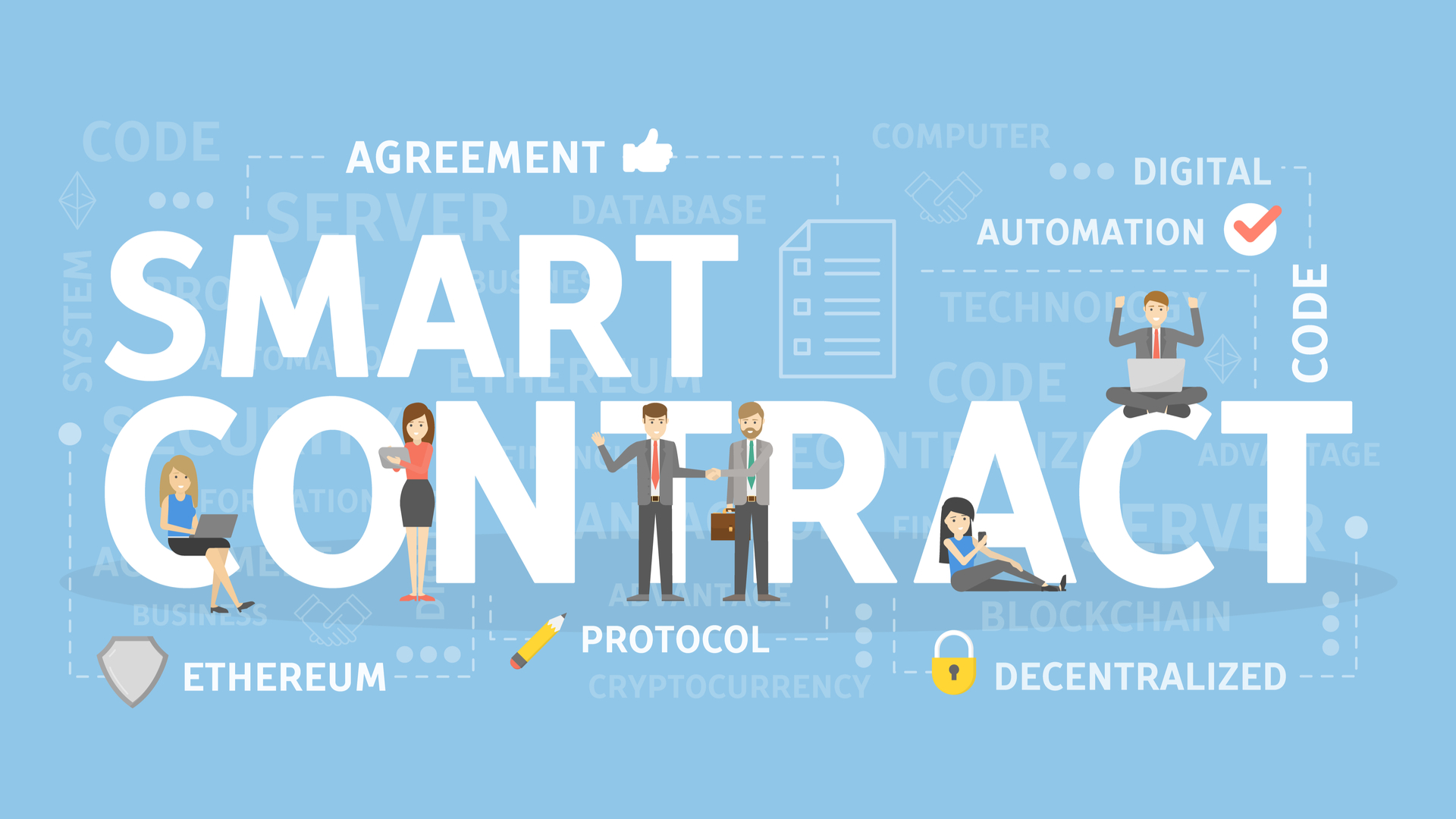How much do smart contracts cost? This question is at the forefront of many minds as businesses explore the potential of this innovative technology. Smart contracts, self-executing agreements stored on a blockchain, offer a revolutionary approach to automating and securing transactions. But the cost of implementing and deploying these contracts can vary widely, depending on factors such as the complexity of the contract, the platform chosen, and the level of security required.
This comprehensive guide delves into the intricacies of smart contract costs, providing insights into the various factors that influence pricing, offering a detailed breakdown of development expenses, and exploring cost-saving strategies. We will also compare the costs of smart contracts to traditional contracts, highlighting the long-term implications of each approach.
Factors Influencing Smart Contract Costs

The cost of developing and deploying a smart contract can vary significantly depending on several factors. Understanding these factors is crucial for budgeting and planning your smart contract project effectively.
Smart Contract Platforms and Pricing Models
Different smart contract platforms offer varying pricing models, influencing the overall cost.
- Ethereum: Ethereum is a popular platform with a gas-based pricing model. Gas represents the computational power required to execute a smart contract. The cost of gas fluctuates based on network congestion and demand, impacting the overall expense.
- Solana: Solana is another popular platform that uses a different approach. It charges a fixed transaction fee for every transaction, making it more predictable than Ethereum’s gas-based model.
- Hyperledger Fabric: Hyperledger Fabric is a permissioned blockchain platform commonly used for enterprise applications. Its pricing model often involves licensing fees and support services, which can vary based on the specific needs of the project.
Smart Contract Complexity and Development Costs
The complexity of a smart contract directly impacts development costs.
- Simple Smart Contracts: Basic smart contracts, such as token contracts or simple escrow agreements, generally require less development time and resources, resulting in lower costs.
- Complex Smart Contracts: Contracts involving intricate logic, multiple functionalities, or integration with external systems require more sophisticated development and testing, leading to higher costs.
Gas Fees and Network Congestion
Gas fees are a significant factor in the cost of deploying and executing smart contracts on Ethereum.
- Network Congestion: When the Ethereum network experiences high congestion, gas prices tend to rise. This is because users compete for limited block space, bidding higher gas prices to ensure their transactions are processed.
- Gas Price Optimization: Developers can optimize gas fees by adjusting the gas limit and gas price for their transactions. Lower gas prices may result in longer processing times, while higher gas prices can ensure faster execution.
Other Factors Affecting Smart Contract Costs, How much do smart contracts cost
Beyond platform fees and development costs, other factors can contribute to the overall expense.
- Legal and Auditing Fees: Smart contracts are often subject to legal and regulatory scrutiny. Legal advice and audits can be necessary to ensure compliance and mitigate potential risks, adding to the overall cost.
- Security Audits: Security audits are crucial for identifying vulnerabilities in smart contracts. These audits can be expensive but are essential for protecting against malicious attacks and ensuring the integrity of the contract.
- Maintenance and Upgrades: Smart contracts may require ongoing maintenance and upgrades to address bugs, security vulnerabilities, or evolving requirements. These costs should be factored into the overall budget.
Breakdown of Smart Contract Development Costs

The cost of developing a smart contract can vary significantly depending on several factors, including the complexity of the contract, the experience of the developers, and the platform on which it is deployed. However, a general breakdown of costs can help you understand the typical expenses involved.This section will Artikel the typical costs associated with smart contract development, encompassing development and coding, testing and auditing, and deployment and maintenance.
Additionally, it will explore the potential costs of engaging third-party services like development agencies or consulting firms.
Development and Coding
The development and coding phase is the most significant cost component in smart contract development. This phase involves writing the code for the smart contract, which requires specialized skills in blockchain programming languages like Solidity, Vyper, or Rust. The complexity of the smart contract directly influences the time and effort required for development, thus impacting the overall cost.Here are some factors that influence the cost of development and coding:
- Complexity of the smart contract: Simple contracts with straightforward functionality will be less expensive to develop than complex contracts with intricate logic and multiple features.
- Experience of the developers: Experienced developers with expertise in blockchain technology and smart contract development will command higher fees than less experienced developers.
- Programming language: The choice of programming language can impact the cost. Some languages might be more expensive to develop in due to the availability of developers or the complexity of the language itself.
- Platform: The platform on which the smart contract is deployed (e.g., Ethereum, Hyperledger Fabric, etc.) can influence the cost due to differences in development tools and resources.
Testing and Auditing
Once the smart contract is developed, it is crucial to test and audit it thoroughly to ensure its security, functionality, and reliability. This phase involves identifying and addressing potential vulnerabilities and bugs that could compromise the contract’s integrity.
- Automated testing: Automated testing tools can be used to test the smart contract’s functionality and identify potential bugs. These tools can save time and resources compared to manual testing, but they might not catch all potential vulnerabilities.
- Manual testing: Manual testing involves reviewing the code line by line to identify potential errors and security vulnerabilities. This process is more time-consuming and labor-intensive than automated testing but can uncover vulnerabilities that automated tools might miss.
- Security audits: Security audits are conducted by specialized security experts who analyze the smart contract code for potential vulnerabilities and weaknesses. These audits are crucial for ensuring the security and reliability of the contract, especially for contracts handling sensitive data or significant financial transactions.
Deployment and Maintenance
After testing and auditing, the smart contract needs to be deployed onto the chosen blockchain platform. Deployment involves configuring the contract and making it accessible on the network. Once deployed, ongoing maintenance is required to ensure the contract’s functionality and security.
- Deployment costs: Deployment costs vary depending on the blockchain platform and the specific requirements of the contract. Some platforms might have higher transaction fees than others, which can impact the cost of deployment.
- Maintenance costs: Maintenance costs include monitoring the contract’s performance, addressing any issues or vulnerabilities that arise, and updating the contract as needed. These costs can vary depending on the complexity of the contract and the level of maintenance required.
Third-Party Services
Many companies and individuals choose to engage third-party services for smart contract development, testing, and auditing. These services can range from development agencies specializing in blockchain technology to consulting firms offering expertise in specific areas of smart contract development.
- Development agencies: Development agencies offer a comprehensive range of services, including smart contract development, testing, and deployment. They often have experienced developers and can handle projects of varying complexities. The cost of engaging a development agency depends on the agency’s reputation, the size of the project, and the complexity of the contract.
- Consulting firms: Consulting firms offer specialized expertise in specific areas of smart contract development, such as security audits, legal compliance, or regulatory guidance. The cost of engaging a consulting firm depends on the specific services required and the expertise of the consultants.
Cost Comparison

Smart contracts and traditional contracts represent distinct approaches to agreement enforcement, each carrying its own set of cost implications. This section delves into a comparative analysis of the costs associated with implementing and maintaining smart contracts versus traditional contracts, considering factors such as initial development, ongoing administration, and potential legal complexities.
Initial Development and Deployment Costs
The initial costs associated with developing and deploying a smart contract can be significantly lower than those associated with traditional contracts. This is primarily due to the automated nature of smart contract execution, which eliminates the need for manual processes and intermediaries.
- Smart Contracts: Initial development costs for smart contracts involve the cost of hiring developers to write and deploy the contract code. This cost can vary depending on the complexity of the contract, the programming language used, and the experience of the developers. However, due to the automation aspect, the cost of drafting and executing a smart contract is generally lower than that of a traditional contract.
- Traditional Contracts: Traditional contracts involve the cost of drafting the contract by legal professionals, reviewing and negotiating the contract, and potentially the cost of witnesses or notaries. The cost of drafting and negotiating a traditional contract can be substantial, particularly for complex agreements.
Ongoing Maintenance and Administration Costs
While smart contracts offer a significant reduction in initial development costs, the long-term maintenance and administration costs can be a factor to consider.
- Smart Contracts: Once deployed, smart contracts generally require minimal ongoing maintenance. However, there may be costs associated with updating the contract code in the future, particularly if changes are required to address new regulations or market conditions. Additionally, security audits and bug fixes may be necessary to ensure the contract’s continued functionality.
- Traditional Contracts: Traditional contracts typically require ongoing administrative tasks such as monitoring compliance, resolving disputes, and potentially amending the contract as needed. These tasks can involve legal fees and administrative costs, which can add up over time.
Legal and Regulatory Complexities
The legal and regulatory landscape surrounding smart contracts is still evolving, and this can pose challenges for businesses seeking to implement them.
- Smart Contracts: The legal enforceability of smart contracts is still being established in many jurisdictions. While the code of a smart contract is transparent and immutable, there may be challenges in interpreting and applying legal principles to the automated execution of contractual obligations. Additionally, the decentralized nature of blockchain technology can create challenges in establishing jurisdiction and enforcing legal remedies.
- Traditional Contracts: Traditional contracts are well-established under existing legal frameworks, providing a clear understanding of legal obligations and remedies. However, traditional contracts can be subject to complex legal interpretations and disputes, which can be costly to resolve.
Long-Term Cost Implications
The long-term cost implications of smart contracts versus traditional contracts depend on a variety of factors, including the complexity of the agreement, the frequency of transactions, and the potential for future changes.
- Smart Contracts: In the long term, smart contracts can offer significant cost savings by automating contract execution and reducing the need for manual processes. However, the evolving legal and regulatory landscape surrounding smart contracts can create uncertainties and potential costs in the future.
- Traditional Contracts: Traditional contracts can involve ongoing administrative and legal costs, which can add up over time. However, the established legal framework surrounding traditional contracts provides a degree of certainty and predictability, reducing the risk of unforeseen costs.
Cost-Saving Strategies for Smart Contract Development: How Much Do Smart Contracts Cost
Developing smart contracts can be expensive, but there are several strategies you can use to minimize costs. By making smart choices in your development process, you can create efficient and cost-effective smart contracts.
Choosing the Right Platform and Tools
Selecting the right platform and tools is crucial for cost-effective development. Different platforms have varying costs, features, and development environments.
- Ethereum: A popular platform with a mature ecosystem and extensive developer tools, but can be more expensive due to gas fees.
- Hyperledger Fabric: A permissioned blockchain platform designed for enterprise use, offering greater control and potentially lower costs.
- Solana: A high-performance platform known for its fast transaction speeds and lower fees, but its ecosystem is still developing.
Consider factors like transaction fees, development tools, community support, and scalability when choosing a platform.
Optimizing Code for Efficiency
Efficient code reduces execution time and gas consumption, directly impacting costs.
- Use Libraries and Frameworks: Utilize pre-built libraries and frameworks to avoid writing repetitive code, saving time and reducing errors.
- Minimize Storage Usage: Store only essential data on the blockchain to reduce storage costs and improve performance.
- Optimize Function Calls: Design functions to minimize unnecessary calls and data transfers.
By optimizing your code, you can reduce the cost of running your smart contract and improve its performance.
Utilizing Open-Source Resources
Open-source resources can significantly reduce development costs by providing readily available tools, libraries, and code examples.
- OpenZeppelin: Offers a collection of audited smart contract libraries, reducing the risk of security vulnerabilities.
- Solidity by Example: Provides practical code examples for various smart contract functionalities.
- Ethereum Foundation Documentation: Offers comprehensive documentation on the Ethereum platform and its development tools.
Leveraging these resources can save you time and effort, allowing you to focus on building unique functionalities for your smart contract.
Engaging with the Developer Community for Support
The blockchain developer community is a valuable resource for getting help, sharing knowledge, and finding solutions to development challenges.
- Online Forums: Participate in forums like Stack Overflow and Reddit to seek answers to your questions and learn from others.
- Discord Servers: Join Discord servers dedicated to specific platforms or technologies for real-time discussions and support.
- Developer Meetups: Attend local or online meetups to network with other developers and gain insights from their experiences.
By engaging with the community, you can gain access to a wealth of knowledge and expertise, helping you overcome development hurdles and reduce costs.
Real-World Examples of Smart Contract Costs
Smart contracts are becoming increasingly prevalent across various industries, offering solutions for improved efficiency, transparency, and security. To understand the cost implications of implementing smart contracts, examining real-world examples can provide valuable insights.
Examples of Smart Contract Deployments
The cost of developing and deploying a smart contract can vary significantly depending on factors such as the complexity of the contract, the platform used, and the development team’s experience. Here are some real-world examples showcasing smart contract deployments across different industries:
| Industry | Type of Smart Contract | Platform | Estimated Development Costs | Case Study/News Article |
|---|---|---|---|---|
| Supply Chain Management | Track and trace goods, automate payments | Ethereum | $50,000 – $100,000 | Supply Chain Brain: Blockchain and Smart Contracts Transform Supply Chain Management |
| Healthcare | Securely store and share patient data, automate insurance claims | Hyperledger Fabric | $100,000 – $200,000 | Healthcare IT News: Blockchain Healthcare Use Cases Explained |
| Finance | Decentralized finance (DeFi) applications, automated trading | Ethereum | $20,000 – $50,000 | Investopedia: Decentralized Finance (DeFi) |
| Real Estate | Digital property ownership, automated rent payments | Ethereum | $30,000 – $70,000 | Coindesk: How Blockchain and Smart Contracts Are Changing the Real Estate Industry |
| Gaming | In-game assets, decentralized gaming platforms | Ethereum, Flow | $10,000 – $30,000 | Forbes: How Blockchain and Smart Contracts Are Transforming the Gaming Industry |
Ultimately, the cost of a smart contract is a function of numerous variables, and it’s crucial to carefully assess these factors before embarking on a development journey. By understanding the intricacies of pricing, leveraging cost-saving strategies, and comparing the value proposition of smart contracts to traditional methods, businesses can make informed decisions that align with their specific needs and budget constraints.
This guide serves as a valuable resource for navigating the complex landscape of smart contract costs, empowering you to make informed choices and harness the power of this transformative technology.
FAQ Overview
What are the most common platforms for developing smart contracts?
Some popular platforms include Ethereum, Hyperledger Fabric, and R3 Corda. Each platform has its own pricing model and features, so it’s essential to choose the one that best suits your needs.
What are some examples of real-world smart contract deployments?
Smart contracts are being used in various industries, including supply chain management, healthcare, and finance. For example, a supply chain company might use a smart contract to automate the tracking and payment of goods, while a healthcare provider could use it to securely store and share patient data.
Are there any resources available to help me estimate the cost of my smart contract?
Yes, there are several online tools and calculators that can help you estimate the cost of developing a smart contract. These tools take into account factors such as the complexity of the contract, the platform chosen, and the development team’s experience.






